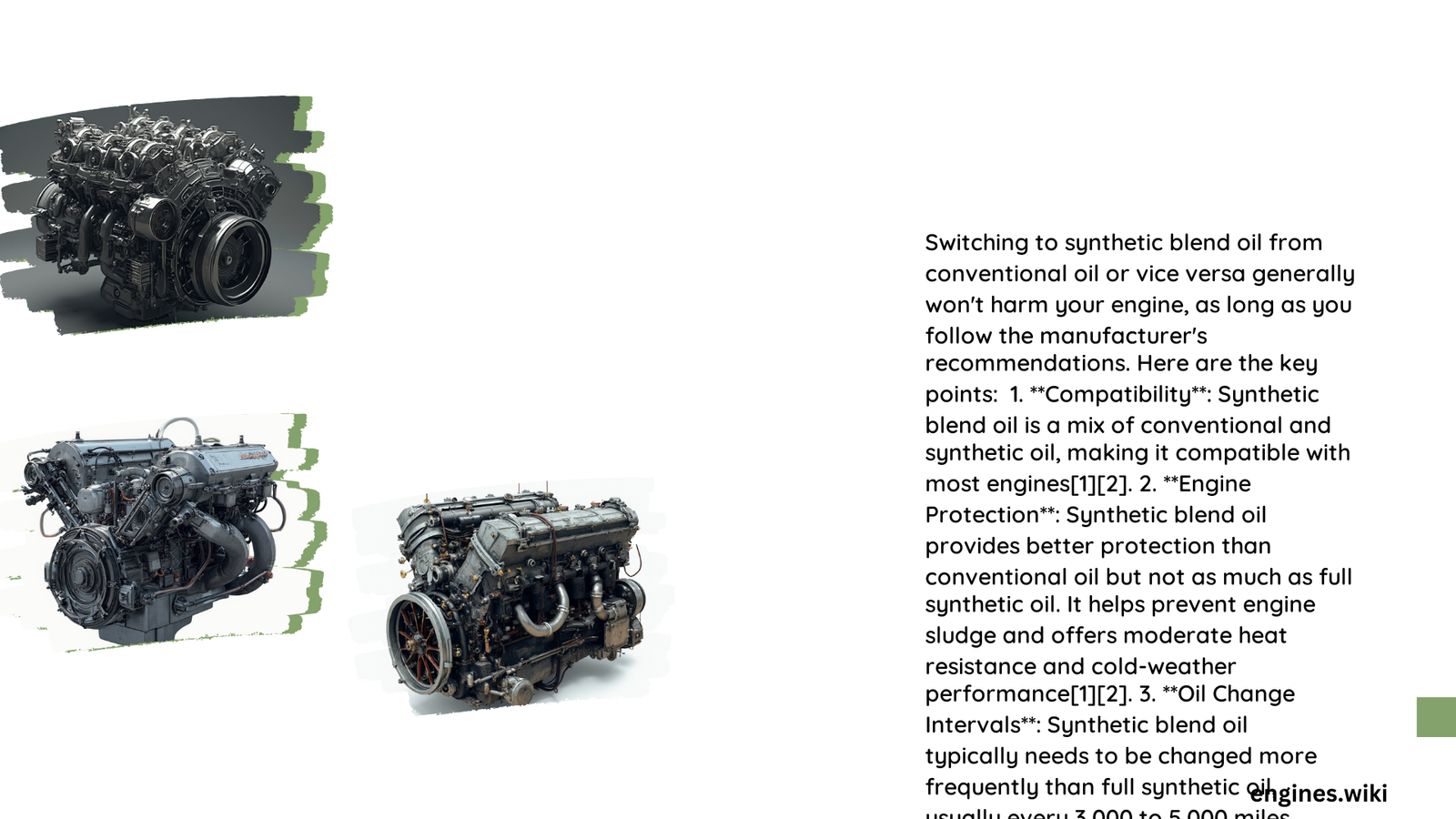Synthetic blend oil represents a strategic compromise between conventional and full synthetic motor oils, offering enhanced engine protection without the premium price tag. Vehicle owners often wonder about potential risks, but comprehensive research suggests that when used correctly, synthetic blend oil can actually provide significant benefits to engine performance and longevity, addressing common concerns about potential engine damage.
Will Synthetic Blend Damage Engine Components?
What Makes Synthetic Blend Unique?
Synthetic blend oil combines conventional mineral-based oil with synthetic oil base stocks, creating a hybrid solution that offers improved performance characteristics. This unique composition provides several advantages:
- Enhanced Molecular Structure: More uniform molecules reduce friction
- Better Temperature Resistance: Maintains viscosity in extreme conditions
- Improved Additive Package: Contains premium protective compounds
Can Older Engines Handle Synthetic Blend?
Potential Compatibility Concerns
For vehicles manufactured before 2000, careful consideration is necessary:
| Engine Age | Synthetic Blend Compatibility | Recommended Action |
|---|---|---|
| Pre-2000 | Potential Seal Interaction | Consult Mechanic |
| 2000-2010 | Generally Safe | Gradual Transition |
| Post-2010 | Highly Recommended | Direct Replacement |
What Risks Exist?
Potential Engine Interaction Scenarios
While synthetic blend oil is generally safe, some specific risks include:
- Seal Degradation: Might expose existing micro-leaks in older engines
- Deposit Removal: Can dislodge accumulated sludge in high-mileage vehicles
- Viscosity Sensitivity: Must match manufacturer specifications precisely
How Does Synthetic Blend Protect Engines?
Performance Enhancement Mechanisms
Synthetic blend oil provides superior protection through:
- Reduced friction between moving parts
- Better high-temperature stability
- Enhanced cleaning properties
- Improved wear protection
- Extended oil change intervals
What Experts Recommend
Professional Guidance
Automotive professionals typically suggest:
- Always follow vehicle manufacturer recommendations
- Check owner’s manual for specific oil requirements
- Consider vehicle age and driving conditions
- Monitor engine performance after oil change
- Use high-quality, reputable synthetic blend brands
Cost-Effectiveness Analysis
Economic Considerations
Synthetic blend offers a balanced approach:
| Oil Type | Cost | Protection Level | Change Interval |
|---|---|---|---|
| Conventional | Low | Basic | 3,000-5,000 miles |
| Synthetic Blend | Medium | Enhanced | 5,000-7,500 miles |
| Full Synthetic | High | Maximum | 7,500-10,000 miles |
Final Verdict: Will Synthetic Blend Hurt My Engine?
In most scenarios, synthetic blend will not hurt your engine when:
– Matched to manufacturer specifications
– Used within recommended parameters
– Installed by qualified professionals
– Regularly monitored for performance
Conclusion

Synthetic blend oil represents a smart, balanced approach to engine lubrication, offering enhanced protection without significant risks when applied correctly.
Practical Recommendations
- Consult your vehicle manufacturer
- Choose reputable oil brands
- Monitor engine performance
- Maintain regular service intervals
